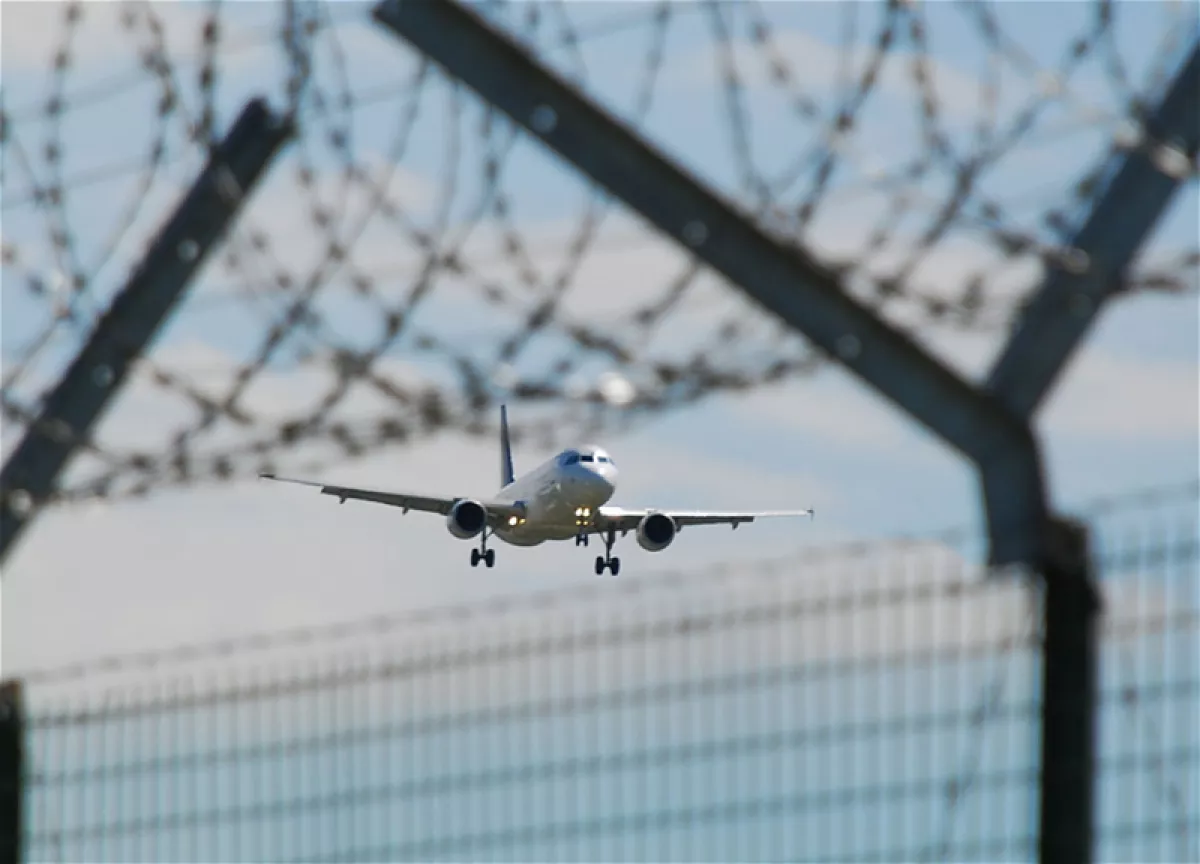Georgia between Iran and Europe Transit, refugees, pressure
The military conflict between Israel and Iran, despite Georgia not sharing a common border with these countries, has inevitably affected both Georgia itself and the entire South Caucasus region.

US President Donald Trump announced a ceasefire between Israel and Iran starting from June 24, 2025. However, many analysts doubt the reality of a swift end to the hostilities. The scale of the consequences of the Iran-Israel war is yet to be assessed — they may impact both economic and humanitarian spheres.
The war in the Middle East has already created risks for international transport communications. Maritime traffic through the Strait of Hormuz is under threat, and disruptions have also occurred on other routes passing through or near the combat zones. Against this backdrop, the importance of the Middle Corridor, including transit through Georgia, may significantly increase — provided stability is maintained within the country itself and in the South Caucasus.
The volume of trade between Iran and Georgia may decline due to military risks. However, Georgia is capable of relatively easily replacing imports from Iran — in particular, bitumen, plastic products, vegetables, fruits, and dried fruits — with alternative supplies from other countries.
The greatest concern is the prospect of a possible flow of refugees from Iran. With Iran’s population at 92 million and Georgia’s at 3.7 million, the scale of potential migration looks critical. There have already been precedents: Türkiye faced a heavy burden due to Syrian refugees, and European countries saw an influx of Ukrainian migrants during the Russia-Ukraine conflict.
If the ceasefire is broken and hostilities continue, it is currently impossible to accurately predict the scale and directions of refugee movements. The only obvious fact is that Georgia has not taken preventive measures to prepare for such a scenario and is unlikely to be ready to serve either as a host country or as a transit territory.
After the start of Israeli airstrikes, civilian flights from Iran were cancelled, and leaving the country became possible only by land. Thousands of people, including foreign nationals, rushed to the land border crossings, preferring the northwest direction. The South Caucasus countries and Türkiye are perceived by Iranians as zones of relative stability, safety, and economic well-being. Therefore, the mass flight of people is occurring precisely toward these regions.

According to the Armenian service of Radio Liberty, Iran’s northern border crossings with Türkiye, Azerbaijan, and Armenia are overcrowded. At the same time, Azerbaijan’s land borders, including the one with Iran, have officially remained closed for more than five years. However, after the outbreak of the conflict, an exception was made on humanitarian grounds: Azerbaijani citizens and foreigners residing in Iran were allowed to cross the border. They were centrally transported to Baku airport and evacuated to their home countries without creating internal tensions.
There are no restrictions on crossing the land borders for Iranian citizens in Armenia and Georgia, where a visa-free regime operates. In peaceful times, this encouraged tourism, but today the flow of Iranians to these countries is driven purely by humanitarian reasons: fleeing the military conflict and deteriorating humanitarian conditions. Food and household goods have disappeared from Iranian cities, electricity and water supply are disrupted, and there is a shortage of medicines.
Refugees have already begun arriving en masse in Armenia. Some of them transit through its territory to Georgia. The flow is likely to increase if the war continues. However, Armenian authorities are trying to minimise the scale of the situation. Iran’s Consul General in Gafan, Morteza Abedin, stated that the traffic congestion at the Meghri checkpoint is not caused by the war but by a lack of infrastructure. According to him, more than 500 Armenian trucks are queued to enter Armenia, which has caused the bottleneck.
Meanwhile, eyewitnesses report a significant increase in the number of people crossing the Armenian-Iranian border. Local taxi drivers immediately took advantage of this, raising the fare to Yerevan from $75 to more than $220. To prevent abuse, the Armenian Ministry of Infrastructure dispatched buses to the border with fixed tariffs.
Syunik (Zangezur) Governor Robert Ghukasyan stated that there are no delays at the border crossing, hotels are operating within normal capacity, and “humanitarian intervention is not required.” However, it is clear that Armenian authorities are deliberately trying not to draw attention to the influx of refugees. The reason is the high level of nationalism and xenophobia in society: a significant number of Iranian refugees are ethnic Azerbaijanis, which could provoke internal tensions.
Under these circumstances, Armenia will likely seek to “redirect” refugees to Georgia. Doing so by air is difficult — the number of flights is limited, and prices have risen. Therefore, many Iranians, especially those who have previously visited Georgia, head north immediately after crossing into Armenia — toward the Georgian border checkpoints.

For them, Georgia is a bridge to Europe. Those considering emigration to the EU use Georgia as a transit territory. Although exact numbers have not yet been announced, it is clear that the number of Iranians crossing Georgia’s southern border has significantly increased. So far, this fits within the tourist season framework, and arrivals easily find accommodation and fly out through Georgian airports.
However, if the ceasefire proves short-lived and the humanitarian situation worsens, serious problems may arise — including the expiration of visa-free stay periods, a shortage of accommodation, and increased social tensions.
The potential humanitarian crisis may be exploited both by domestic opponents of the Georgian authorities and by external actors. The pro-Western opposition and radical groups might play the xenophobia card, while the EU could increase pressure on Tbilisi. Against this backdrop, it is particularly symbolic that the escalation in the Middle East began concurrently with statements by European officials about the possibility of suspending the visa-free regime for Georgia.
Under these circumstances, it is possible that the EU will attempt to cement Georgia’s role as a hub for receiving Iranian refugees, despite the country lacking the financial and infrastructural resources to accommodate them.
Vladimir Tskhvediani, Georgia, exclusively for Caliber.Az








